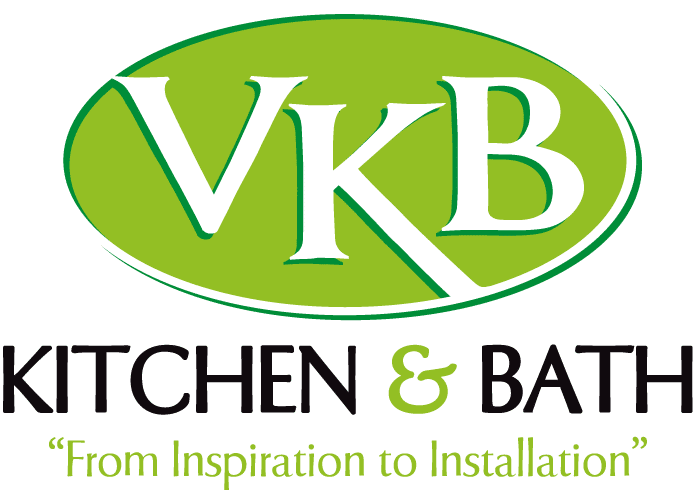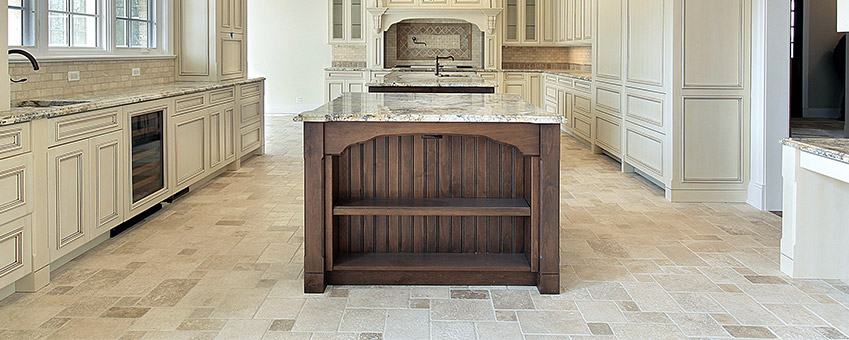When it comes to elevating the aesthetics and functionality of your home, hardwood floor finishes play an indispensable role. Not only do they add a layer of protection to your wooden surfaces, but they also enhance the overall appearance of your floor. From a simple kitchen remodel to a complete home revamp, choosing the right finish can make all the difference.
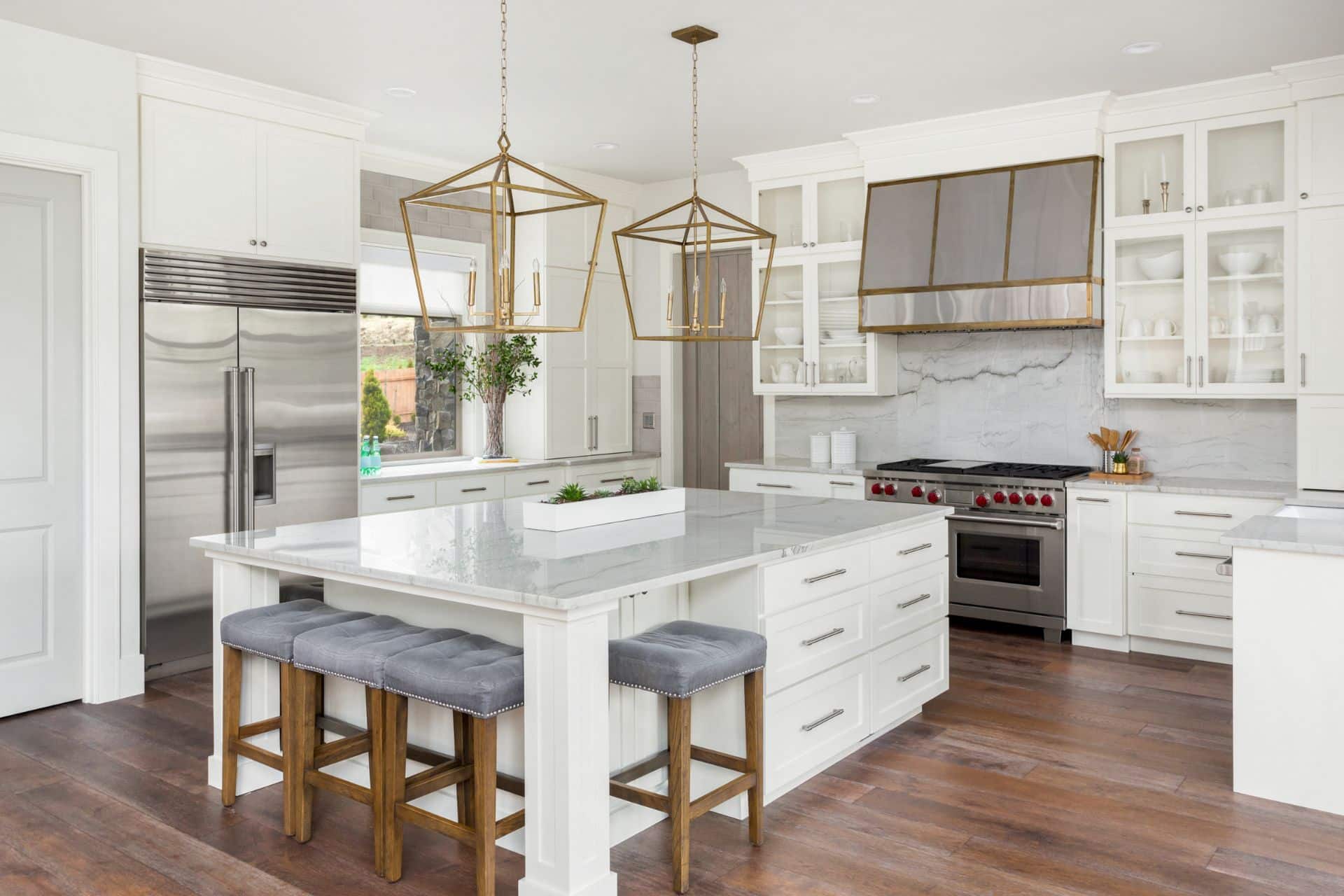
Hardwood Floor | Canva
Understanding Hardwood Floor Finish Types
- Polyurethane: A popular and versatile finish. Comes in both water-based and oil-based variants.
- Oil Finish: A traditional finish offering a natural, soft glow.
- Wax: Offers a classic low-sheen look but requires more maintenance.
- UV-Cured: Instantly dries upon exposure to UV light, providing quick results.
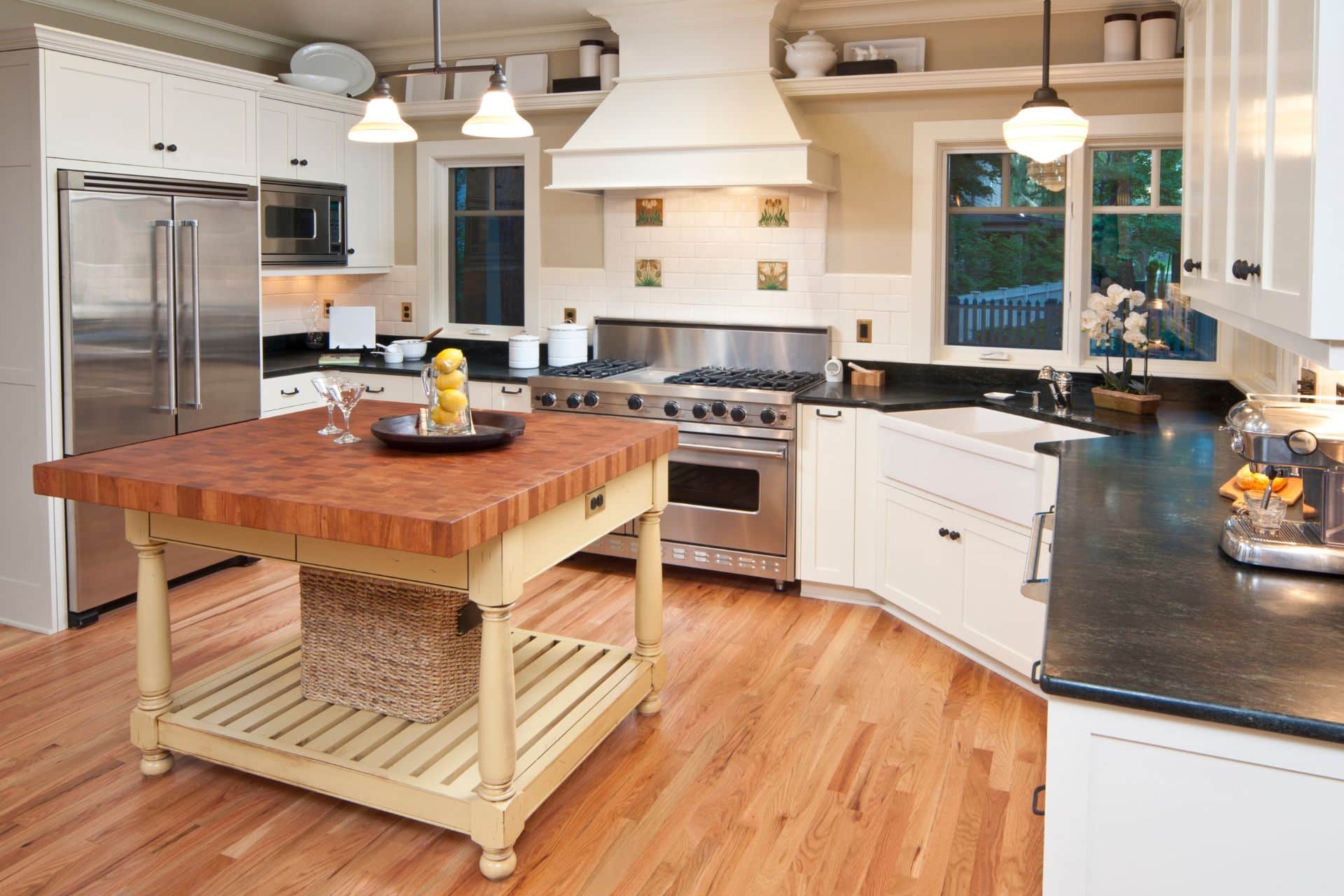
Hardwood Floor | Canva
Choosing the Best Hardwood Floor Finish for Your Home
The best finish hinges on your specific requirements. Here’s a simple breakdown:
Polyurethane vs. Oil Finish for Hardwood
- Polyurethane: Offers a glossy sheen and provides a protective barrier against water and wear. More suitable for areas with high foot traffic.
- Oil Finish: Gives the wood a natural appearance. It’s ideal for those wanting a softer, low-sheen look.
Water-Based vs. Oil-Based Hardwood Finish
- Water-Based: Dries faster, has less odor, and is eco-friendlier. Perfect for a quick kitchen remodel.
- Oil-Based: Takes longer to dry, but imparts a richer hue to the wood.
Application: How to Apply Hardwood Floor Finish
- Preparation: Ensure the floor is clean and free from dust.
- Choose Your Tool: Use a synthetic brush or applicator.
- Apply: Follow the manufacturer’s guidelines for the best results. Ensure even coating.
Hardwood Floor Finish Durability
The durability of hardwood floor finishes varies:
- Polyurethane: Highly durable, and can last for years.
- Oil Finish: Requires re-application more frequently but provides a rich patina over time.
The Role of Finishes in a Kitchen Remodel
The kitchen is a central gathering point in many homes, where families come together, meals are crafted, and cherished moments unfold. Given its significance, each aspect, including the finish of the hardwood floor, becomes paramount when considering a remodel.
The Unique Demands of a Kitchen Environment
Unlike other rooms in the house, the kitchen poses unique challenges to flooring:
- Spills and Moisture: Whether it’s a splash of water, spilled wine, or dropped sauce, the kitchen is prone to wet accidents. These spills can damage the hardwood by staining it or, worse, seeping into the wood grains, causing it to warp or rot.
- High Traffic: From hurried breakfasts to late-night snacks, kitchens see a lot of foot traffic. This frequent use can cause wear and tear on the flooring, especially in areas near the stove, sink, and refrigerator.
- Dropped Utensils: Accidental drops of heavy pots, pans, or utensils can dent or scratch the hardwood surface.
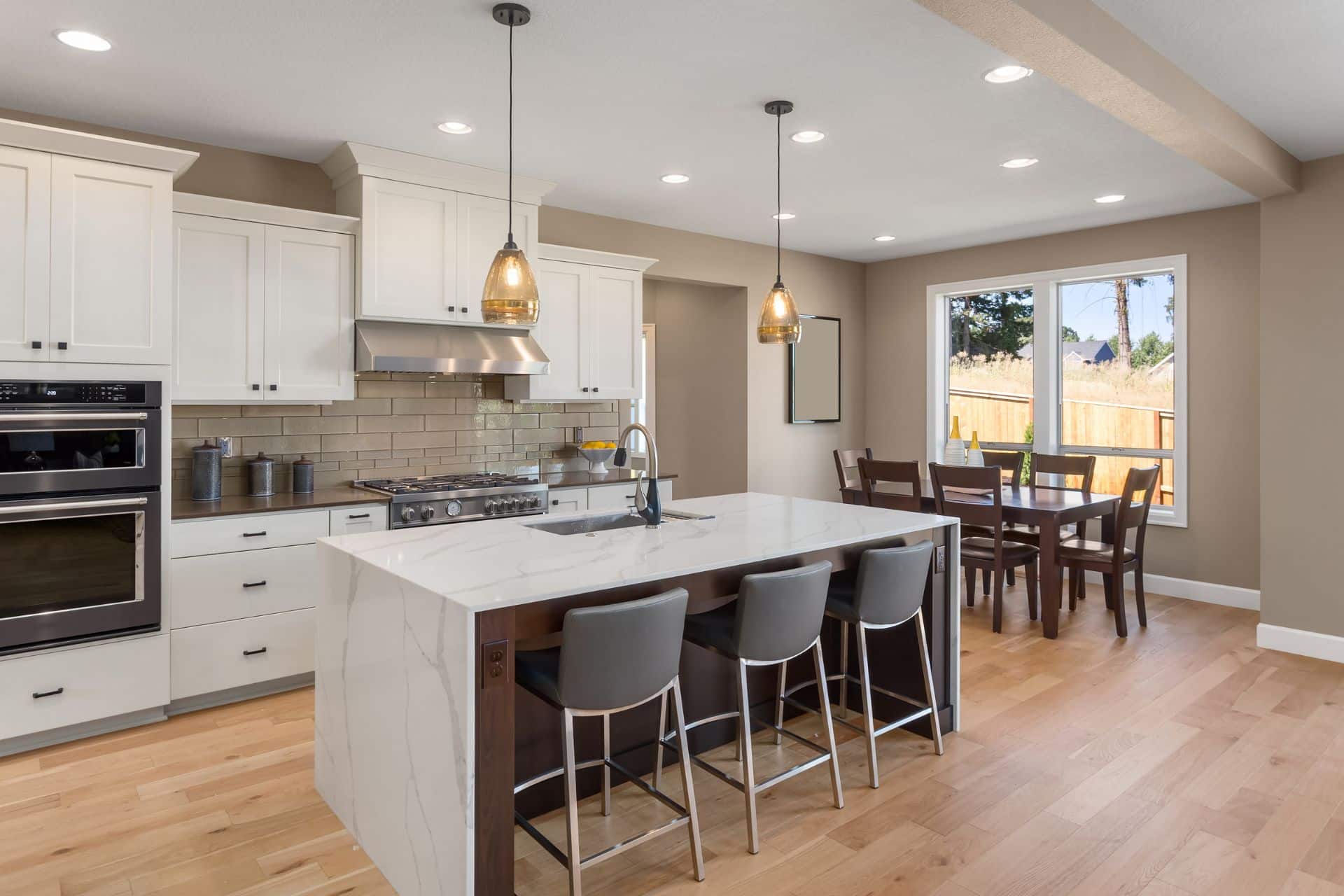
Hardwood Floor | Canva
Why The Finish Matters
Considering these challenges, the finish you choose for your kitchen hardwood floor isn’t just about aesthetics; it’s about protection and longevity:
- Protective Barrier: A robust finish acts as a shield, preventing spills from penetrating the wood. This barrier can be the difference between a floor that lasts decades and one that needs frequent refinishing.
- Ease of Cleaning: Some finishes create a smoother surface, making it easier to clean up spills or dirt. In a kitchen, where cleanliness is paramount, this becomes a significant advantage.
- Enhanced Appearance: Over time, hardwood can lose its luster due to daily wear and tear. A quality finish can renew its shine, ensuring the floor remains as stunning as the day it was installed.
Choosing the Right Finish
Given the kitchen’s demands, it’s no surprise that many homeowners prefer durable finishes like polyurethane:
- Polyurethane: This finish stands out for its durability and resistance to moisture. It’s available in both water-based and oil-based forms. While water-based polyurethane dries faster and emits fewer odors, oil-based varieties offer a richer, deeper hue. Both types provide a strong protective layer against the daily challenges a kitchen floor faces.
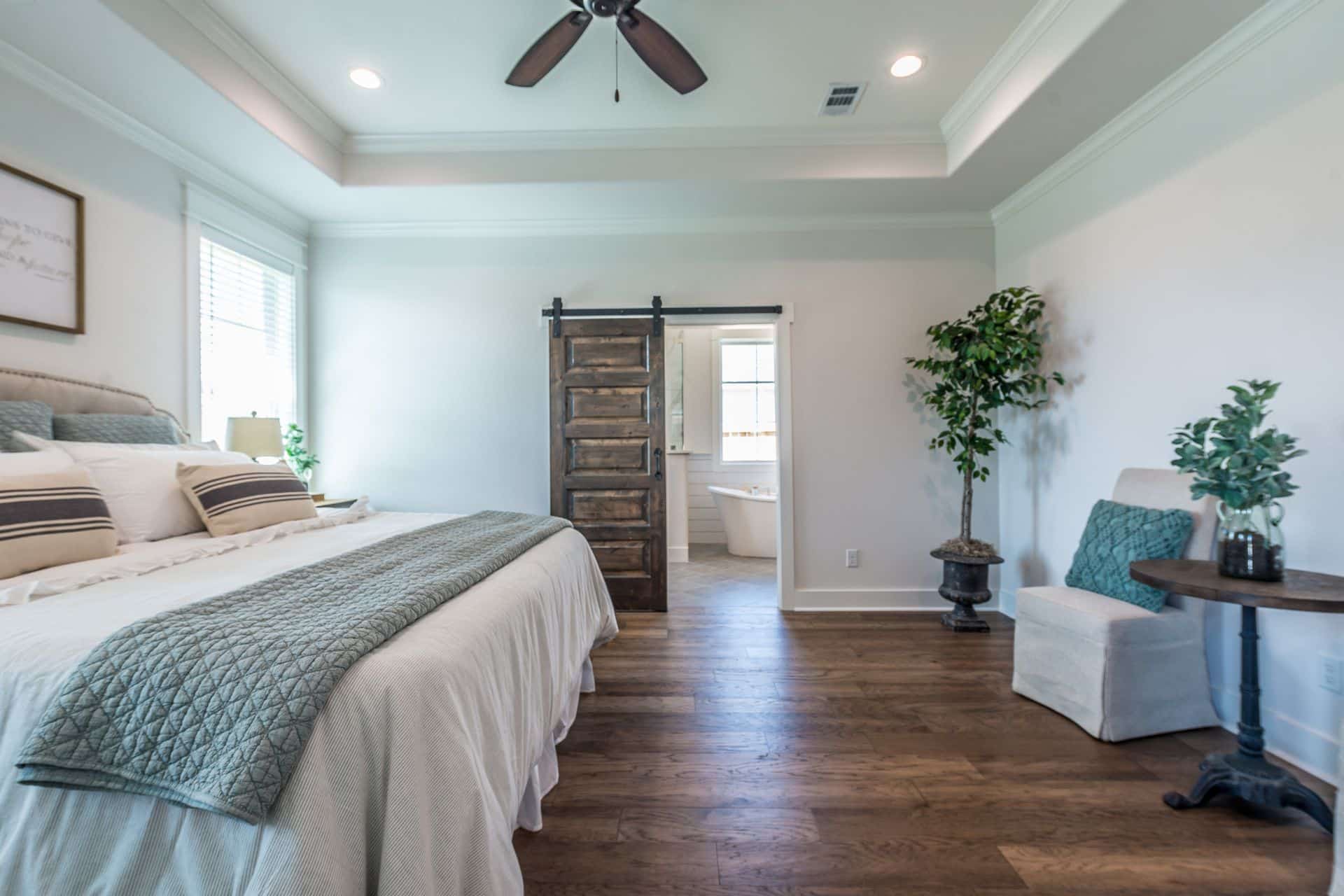
Hardwood Floor | Canva
FAQs about Hardwood Floor Finishes
What finish is best for high-traffic areas?
Polyurethane, especially the water-based type, is recommended for high-traffic areas due to its durability.
How often should I reapply an oil finish?
Depending on the wear, every 2-3 years is standard. However, high-traffic areas may require more frequent applications.
Can I switch from one finish type to another?
Yes, but the floor might require sanding or thorough cleaning to ensure proper adhesion.
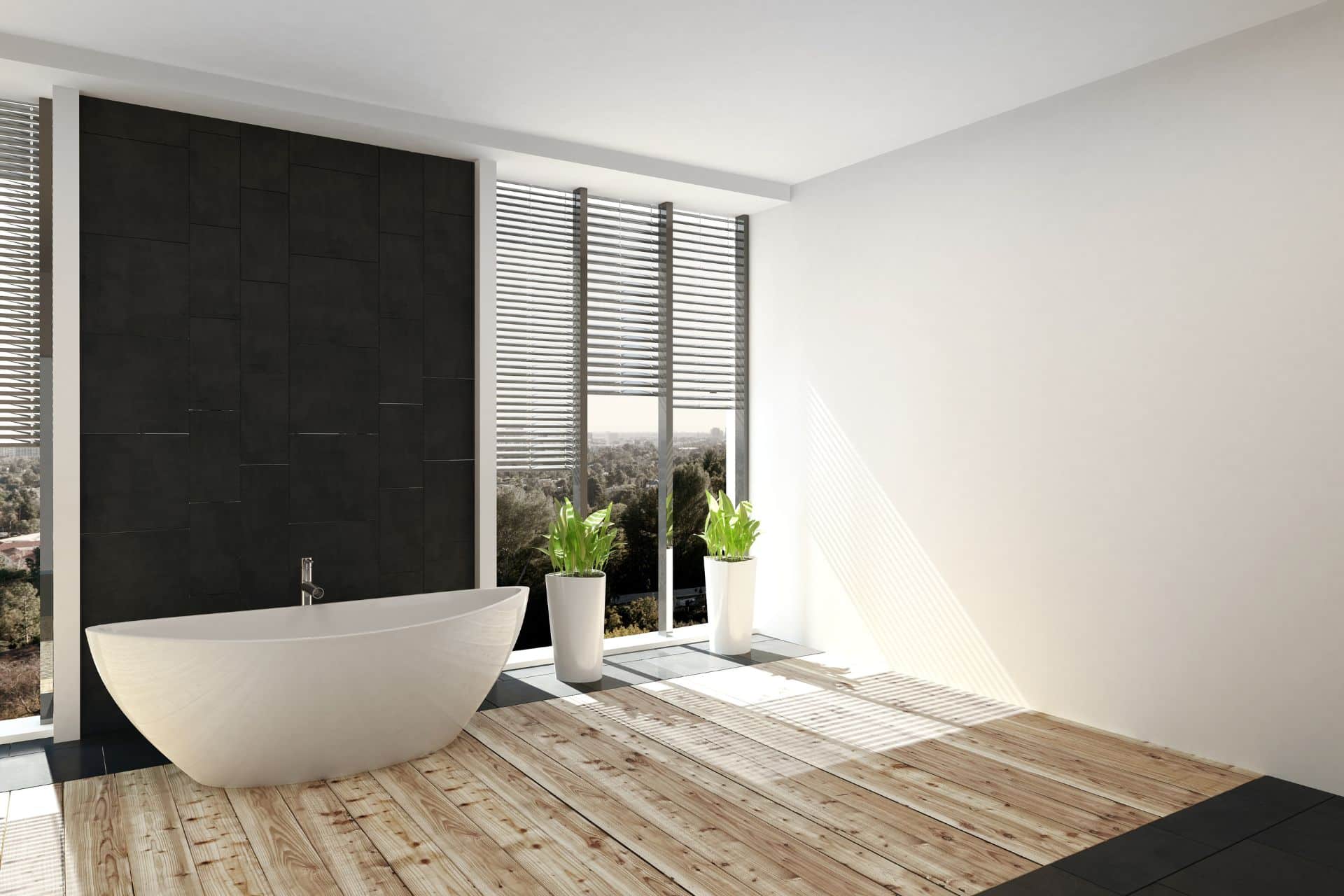
Hardwood Floor | Canva
Conclusion
In conclusion, hardwood floor finishes are more than just a protective layer. They define the look, feel, and longevity of your flooring. By understanding the different types and their benefits, you can ensure your home gleams with beauty and stands the test of time.
